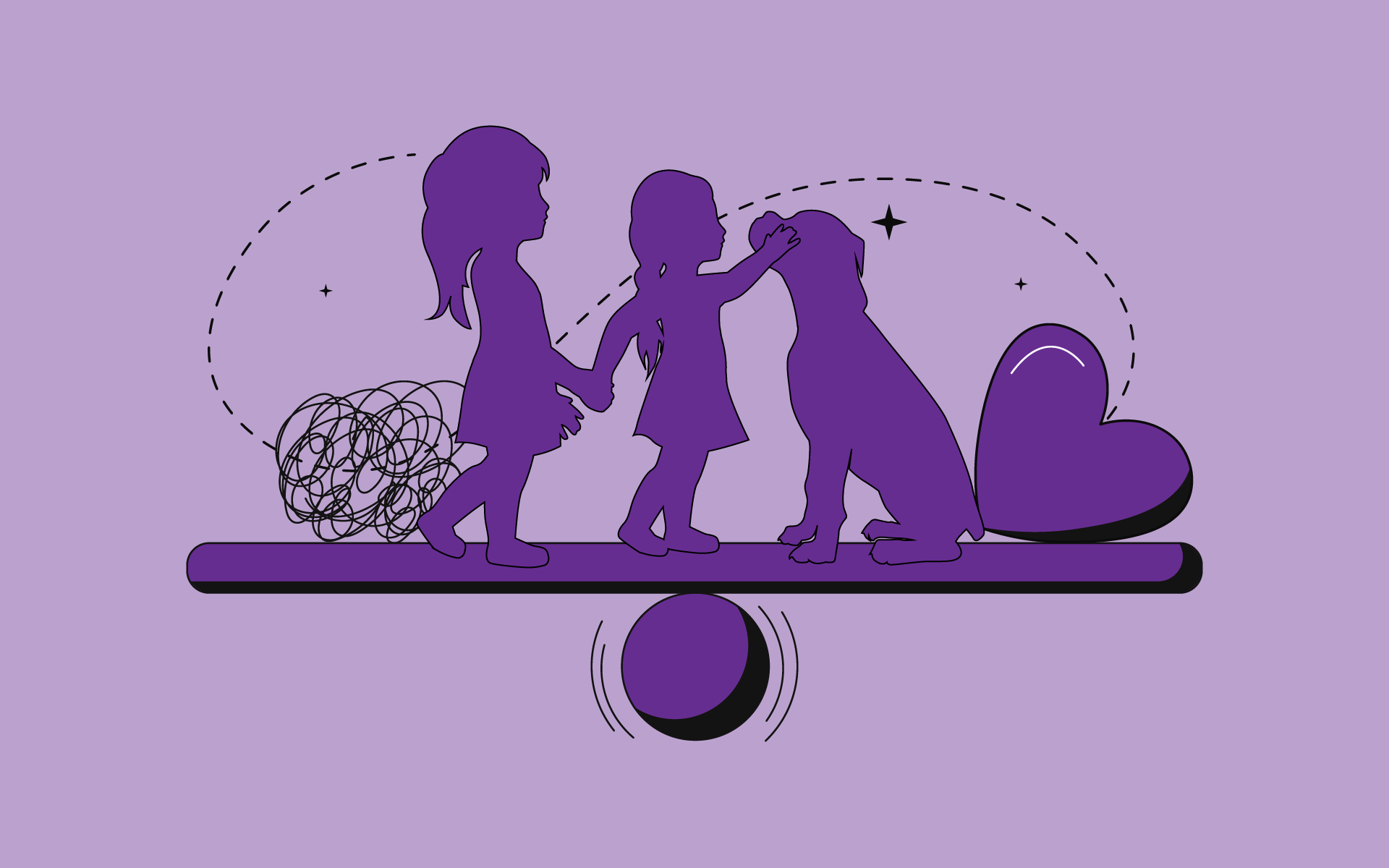On my desk is a photo of my best friend. We grew up together and were inseparable. We had many adventures – we played for hours, got into trouble, and we plotted the downfall of the schoolboy bully.
My friend revelled in my triumphs and comforted me when life didn’t go according to plan. I told him all my secrets.
He was a good listener: he never laughed at me or judged me. His name was Zardoz. He was a big, ‘galumphy’ good boy – a Rottweiler I adored. The feeling was mutual.
Research doesn’t have to tell me that pets are linked to the psychological wellbeing of children.
I know that because Zardoz was my rock as I navigated my turbulent teen years. He made me feel at peace with the world even when it made no sense.
However, scientists need more than anecdotal evidence and for years have been studying the potential physical and mental health benefits of different animals – from fish to horses to cats and dogs – for children.
A 2017 study in the Anthrozoos journal reviewed 22 studies that explored the impact of pets on children’s development.
This “superstudy” confirmed that children who grow up with pets tend to be healthier, have fewer behavioural and learning difficulties, and have higher self-esteem, cognitive development, and social skills.
One study indicated that pets provide an audience to an infant’s babbling. This encourages speech and can enhance children’s verbal skills.
There’s also evidence that pets can help children with anxiety and depression, and provide reassurance when children are angry or sad.
Researchers at the University of Western Australia found that children aged two to five, with a family dog, were more active and spent less time on screens than those without a pet.
The reason, the researchers reckoned, was because the family took the dog for regular walks.
While dogs are the therapy gold standard, other pets have also been found to benefit children’s development.
A study where guinea pigs were the, er, guinea pigs, found that after playing with the fluffy rodents, the anxiety levels of children with autism dropped, and the children had better social interactions with their peers.
Another study showed that children demonstrated attachment behaviour towards their pets, and these bonds of affection could provide a secure base in later relationships.
There is evidence that children who have an attachment to a dog are better adjusted at school.
Brian Bergman, a vet at the Mdzananda Animal Clinic in Cape Town’s Khayelitsha township, says pets reduce loneliness and are a powerful source of comfort and emotional support for children in poor communities.
He sees how children benefit from having a close emotional bond with a pet.
So does Dr Marieanna Le Roux, a retired psychology lecturer at Stellenbosch University and volunteer at Pets as Therapy (PAT) – which, among other things, provides animal-assisted activities to special needs pupils.
She says that interacting with pets instils responsibility in children and helps children develop an ability to have, and show, empathy.
According to Le Roux, studies have shown that when dogs were in a classroom, pupils paid more attention and their motivation improved.
Boys also became less aggressive and hyperactive. (Maybe we should send dogs to Parliament.)
“Dogs have a calming effect,” Le Roux explains. “Being with a dog decreases levels of cortisol, a stress-related hormone, and lowers blood pressure – that’s been proven.”
Le Roux’s doctoral research explored the impact of an animal-assisted reading programme on the reading skills of grade three pupils.
She found there was an improvement in pupils’ reading skills when they read to dogs.
“It was unbelievable to see the children develop as they read to the dogs, and explained words and the story to the dog.”
Le Roux says the improvement could be due to the stress-moderating effect of a calm animal.
Children who struggle to read may relax in the presence of a non-judgmental animal, and then start to enjoy reading.
According to Le Roux, when the children read to the dogs, they knew they could make mistakes without the threat of being punished or ridiculed.
“They became teachers to a transient being who could not read at all and through that process they were teaching themselves.”
What is it about dogs that make them so beneficial to children’s development?
Le Roux says dogs’ unconditional love and unconditional acceptance – no matter who you are, what you look like or how little money you’ve got – is very comforting to children.
When I look at the photo of Zardoz I realise that a human’s best friend can have a magical effect on children. This magic is something scientists will never be able to put under a microscope and explain.
As psychologist Elizabeth Anderson writes in The Powerful Bond Between People and Pets: “Nothing less than alchemy is involved when animals and children get together … the resulting magic has healing properties that work well.”

Leave a Reply